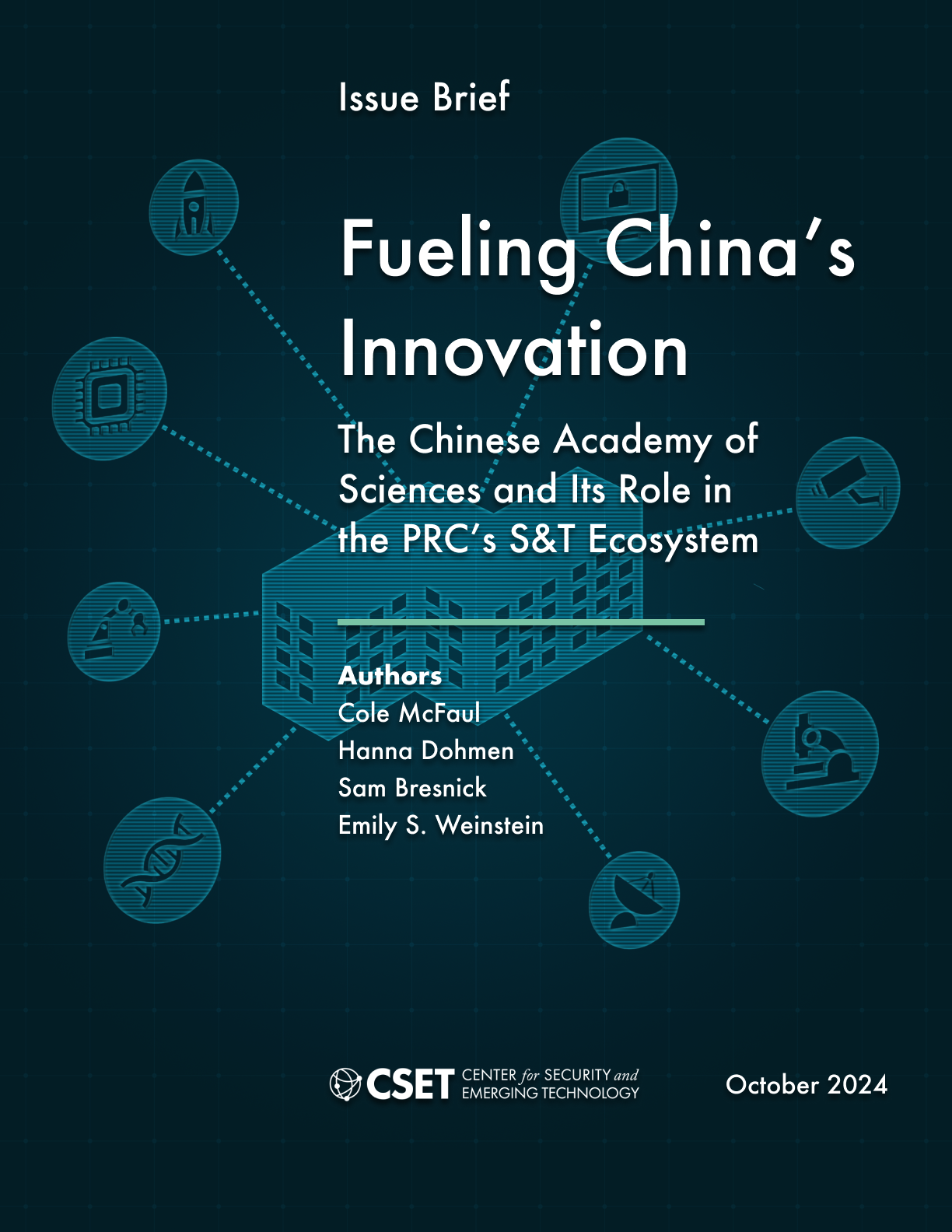Executive Summary
The Chinese Academy of Sciences is one of the most important scientific research organizations not only in China but also globally. Through its network of research institutes, universities, companies, and think tanks, CAS is a core component of China’s science and technology innovation ecosystem. This brief first traces the organization’s historical significance in China’s S&T development, outlining key reforms that continue to shape the institution today. It then details CAS’s core functions in advancing S&T research, fostering commercialization of critical and emerging technologies, and contributing to S&T policymaking. Using scholarly literature, we provide insights into CAS’s research output in the science, technology, engineering, and mathematics (STEM) fields as well as in certain critical and emerging technologies, including artificial intelligence (AI).
Our key takeaways are as follows:
Research
- CAS is the top producer of STEM research globally, both in terms of total number of papers and number of highly cited papers.
- CAS is a hub of top-tier S&T researchers and plays an important role in training the next generation of experts. In 2022, CAS ranked second globally among institutions by number of top-cited researchers, trailing only Harvard University.
- CAS’s 115 research institutes work on a diverse range of S&T subjects. CAS institutes publish most frequently in the field of industrial technology, which accounted for 35 percent of their published papers in 2021.
- CAS institutes also advance research in critical and emerging technologies, such as AI. The majority of AI-related research published by CAS is conducted by a narrow subset of institutes. The Institute of Automation, the Shenyang Institute of Automation, and the Institute of Computing Technology are top producers of AI-related research within CAS.
Commercialization
- CAS fosters technology transfer from research organizations to industry through various commercialization mechanisms, including making investments via asset management companies and venture capital firms, licensing proprietary research, and offering contract research services.
- CAS provides research, financing, and personnel to support the founding and development of technology companies.
- Notable companies founded with CAS support include AI company iFLYTEK, PC manufacturer Lenovo, supercomputer company Sugon, AI chip developer Cambricon, and CPU designer Loongson.
Policymaking
- CAS plays a key role in the development and implementation of China’s S&T policies. CAS has contributed to major S&T policy initiatives such as the founding of the National Natural Science Foundation of China and to S&T development projects such as the 863 Program and the 973 Program.
- CAS academicians are among the most important individuals in China’s S&T ecosystem. They influence resource allocation to S&T projects and often serve in important policymaking roles.
In sum, CAS is a global leader in STEM fields and a pillar of China’s S&T development ecosystem. It has facilitated the rise of globally competitive technology companies and continues to influence China’s S&T policy. At the same time, CAS’s expansive set of responsibilities as a research organization, a commercial entity, and a bureaucratic actor complicate its mission. Understanding the tensions that may exist among these functions is important, as Beijing continues to commit extensive resources to CAS. The organization’s success—or lack thereof—will affect Beijing’s own ability to effectively achieve its S&T development ambitions.
—
This report was updated on October 25, 2024, to clarify the relationship between CAS, Legend Holdings, and Lenovo.
